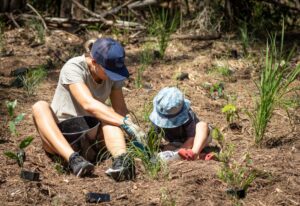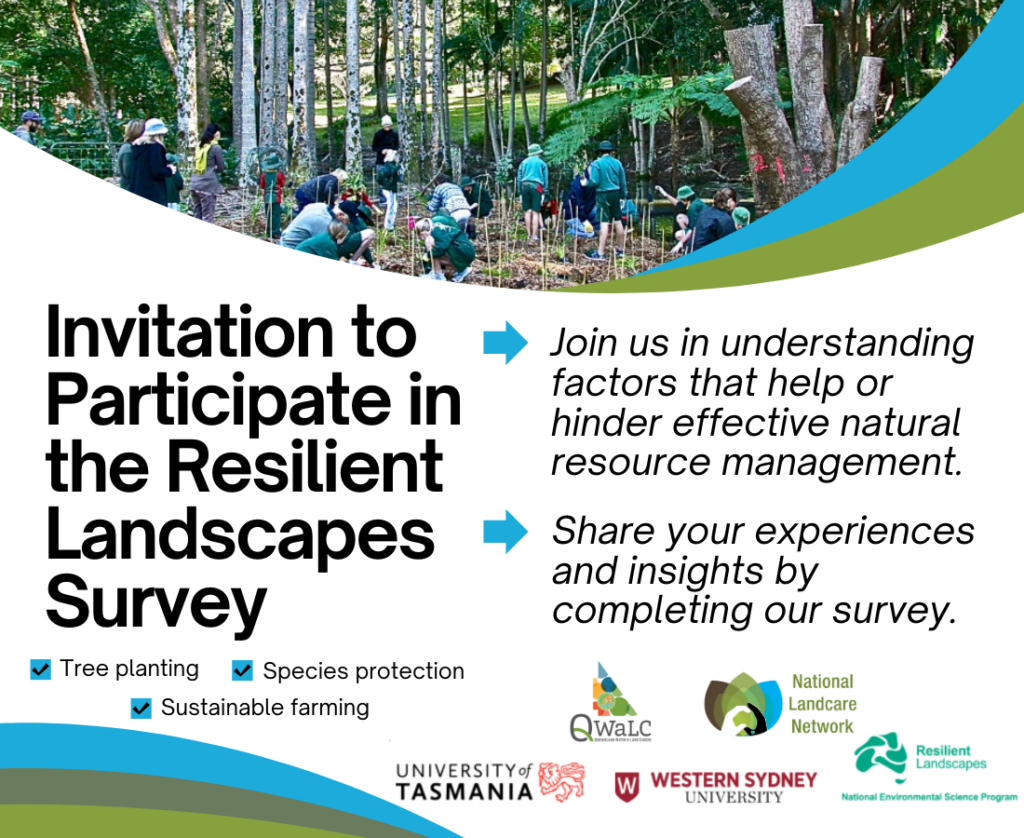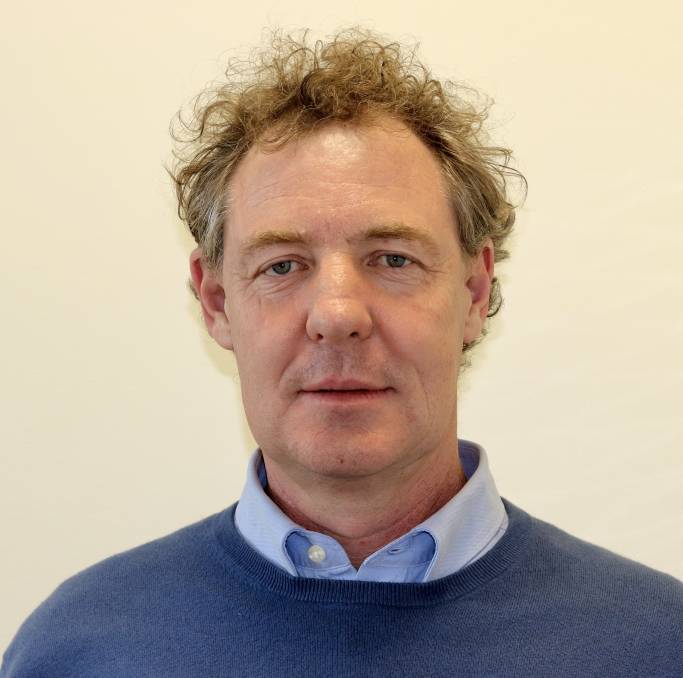Help Make a Difference for More Resilient Landscapes!
Natural resource management is a critical aspect of ensuring the sustainability and health of our environments. The Resilient Landscapes Hub, with funding from the National Environmental Science Program, has embarked on a national study called ‘Success factors for resilient landscapes’.

This project aims to delve into the factors that facilitate or hinder effective natural resource management activities such as tree planting, species protection, sustainable farming, and environmental enhancement across varied settings.
The study’s findings, which builds on previous research, will be invaluable for organisations involved in natural resource management. By understanding success factors, organisations can better design their programs and demonstrate their achievements across different scales.
To achieve a comprehensive and representative understanding, the project team is inviting members from diverse organisations and groups to ensure the findings reflect a wide range of experiences and opinions.
How You Can Help
If you are involved in environmental stewardship efforts, are just getting started, or work as a land manager, this is an opportunity to share your experiences, achievements, or aspirations in these efforts by completing this national survey.
Your response will help government and non-government organisations develop strategies that better support landowners, and communities in achieving more sustainable and resilient landscapes across Australia. Together, we can ensure that our landscapes remain resilient and thriving for future generations.
The survey explores three main themes: (a) your involvement in the activity, (b) your motivations and objectives, and (c) factors that help or hinder your efforts. It will take approximately 25–30 minutes to complete.
To encourage participation, we are offering incentives for those who complete the survey. At the end of the survey, you will be asked if you would like to go in a draw to win a prize. There will be a total of eight prizes, and all winners (drawn randomly) will be provided with free conference registration and a $1,000 gift card to support travel and accommodation.
The draw will take place on 1st August 2025, and winners will be notified by 8th August 2025. Terms and conditions apply.
You will be given the opportunity to tell us which conference you would like to go in the draw for – there are two tickets available for the NRM Knowledge Conference, the National Landcare Conference and the Australian Citizen Science Association conference, there is one ticket available for each of the others:
- NRM Knowledge Conference – Cairns, 8th–12th September
- The National Landcare Conference – Gold Coast, 21st–24th September
- The National Farmers Federation Conference – AgXchange – Gold Coast, 23rd–25th September
- The Australian Citizen Science Association Conference – Melbourne, 13th–15th October
- The Ecological Society of Australia Conference – Adelaide, 23-28th November
This research survey is being conducted by researchers at the University of Tasmania, the National Landcare Network, the NSW Department of Climate Change, Energy, the Environment and Water, and Western Sydney University with support from the Resilient Landscapes Hub of the National Environmental Science Program.
Please email successlandscapes@utas.edu.au if you have any questions or concerns about the research.
To learn more about the project visit: nesplandscapes.edu.au/projects/nesp-rlh/landcare-and-threatened-species
To complete the survey go to: bit.ly/successlandscapes
(Please enter this address in your desktop browser. The survey is not suited for mobile devices.)
Thank you for your cooperation and participation!

 Opinion editorial courtesy of the National Landcare Network and NLN Chair Dr Patrick O’Connor
Opinion editorial courtesy of the National Landcare Network and NLN Chair Dr Patrick O’Connor